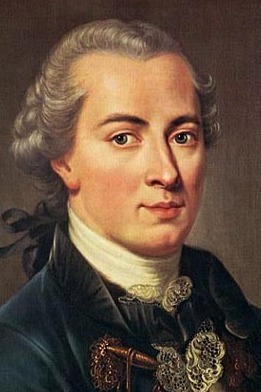
Personal info
Known for
Ultimate Talent
Gender
Male
Birthday
22 April
Location
Kaliningrad, Russia
Edit pageImmanuel Kant
Biography
Immanuel Kant is regarded as one of the most important philosophers in modern Western thought. His works transformed philosophy by emphasizing reason, morality, and the limits of human understanding. Kant’s ideas continue to influence ethics, science, and politics, shaping how we think about knowledge and human responsibility.
Early Life and Education
Immanuel Kant was born on April 22, 1724, in Königsberg, Prussia (now Kaliningrad, Russia). He was the fourth of nine children in a modest but devout Lutheran family. From a young age, Kant showed exceptional intelligence and curiosity about the natural world.
He studied at the University of Königsberg, where he focused on philosophy, mathematics, and physics. After completing his studies, he worked as a private tutor for several years before returning to the university as a lecturer.
Career and Philosophical Contributions
Kant spent his entire career in Königsberg, living a disciplined and orderly life devoted to teaching and writing. In 1770, he became a professor of logic and metaphysics at the University of Königsberg, where he taught until his retirement.
Kant’s philosophy sought to bridge the gap between rationalism (the belief that reason is the source of knowledge) and empiricism (the belief that knowledge comes from experience). His most famous work, “Critique of Pure Reason” (1781), examined how humans perceive and understand the world. He argued that while knowledge begins with experience, the human mind actively shapes how we interpret that experience.
In ethics, Kant introduced the concept of the “categorical imperative,” a principle stating that moral actions must be guided by universal rules that apply to everyone. He believed that true morality is based on duty, not personal gain or emotion, and that humans should always treat others as ends in themselves, never merely as means to an end.
Kant also wrote important works on politics, religion, and aesthetics, including “Critique of Practical Reason” and “Critique of Judgment.”
Death and Legacy
Immanuel Kant died on February 12, 1804, in Königsberg, at the age of 79. His final words were said to be, “It is good.”
Kant’s influence on modern philosophy is immeasurable. His critical approach laid the foundation for later thinkers such as Hegel, Schopenhauer, and modern existentialists. His ideas on morality and human rights continue to guide ethical theory, law, and democratic thought today.
Conclusion
Immanuel Kant dedicated his life to understanding the power and limits of human reason. His philosophy taught that while we may never know things as they are in themselves, we can live wisely and morally through rational thought and duty. Kant’s legacy endures as a symbol of intellectual integrity and the pursuit of truth through reason.